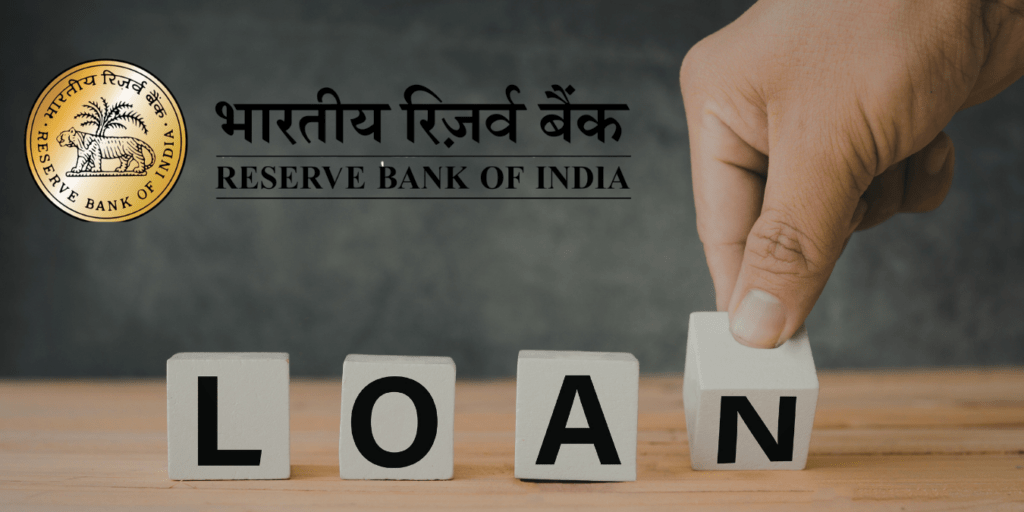
In 2025, NRIs are flocking to Indian term insurance, slashing premiums by up to 50% and unlocking 18% GST waivers. With global validity, rupee-denominated payouts, and tax-free claims, these plans offer unmatched savings and emotional security for families back home
In an era defined by global connections and transnational lives, Non-Resident Indians (NRIs) are increasingly turning their gaze towards India for securing their family’s future through term insurance. The year 2025 marks a clear turning point where the blend of significantly lower premiums, strategic tax advantages, and unique policy features offered by Indian insurers has made term insurance from India an irresistible proposition for NRIs globally.
The Compelling Economic Advantage: Up to 50% Lower Premiums and GST Benefits
Indian term insurance plans for NRIs are significantly cheaper compared to local foreign plans, with premium savings typically ranging from 20% to 50%. This large cost advantage is especially pronounced for NRIs living in countries like the UAE, Singapore, and the US. Indian insurers also offer an 18% GST waiver on premiums paid through NRE accounts, which further boosts affordability. Besides lower premiums, Indian policies provide features like rupee-denominated payouts and global coverage that are often not available or more expensive through foreign insurers. These savings can amount to several lakhs of rupees over the policy term, making Indian term insurance an economically smart choice for NRIs seeking high coverage at a fraction of the cost found abroad.
Tailor-Made Coverage for Global Citizens
Beyond price, Indian term insurance products have evolved to meet the global lifestyle of NRIs. Policies now offer:
- Rupee-denominated payouts, ensuring families in India receive the full value of the cover without currency conversion uncertainties.
- Global validity, which means death benefits are honoured irrespective of the claimant’s location worldwide. This offshores the cross-border complexities often encountered with insurers domiciled outside India.
- Customisable policy terms and coverage amounts ranging typically from ₹50 lakh to ₹5 crore, catering to diverse financial goals and family protection needs.
This sophisticated design balances the emotional security of protecting loved ones ‘back home’ with practical financial planning.
GST Waiver on NRI Term Insurance affects Premium Calculations
The GST waiver on NRI term insurance affects premium calculations by effectively reducing the total premium cost by 18%, making Indian term insurance significantly more affordable for NRIs compared to insured residents who pay GST. This waiver applies when NRIs pay their premiums through a Non-Resident External (NRE) bank account and have the policy issued with a foreign address, classifying it as an export of service under Indian tax laws. Without GST, the base premium itself remains the same, but the overall amount payable is lower by the GST portion, resulting in substantial savings over the term of the policy. However, if premiums are paid from resident accounts or Non-Resident Ordinary (NRO) accounts, the GST charge applies, and the waiver does not apply. This tax advantage lowers the cost burden on NRIs, making Indian term insurance highly competitive and a preferred choice.
Bandhan Bank Legacy Savings Account: Interest Rates 6.15% with Debit Card Perks
RBI’s New 2026 Loan Recovery Rules Ban Harassment Calls and Protect Families
Indian Stock Market Trends 2025: Your Ultimate Guide to BSE Sensex, Nifty 50, Sector Performance, and Top Stocks
Anonymous Donations to Trusts Get Exemption Back – But at What Cost?
The Emotional Resonance: Safeguarding Dreams Across Continents
For many NRIs, term insurance is not just a financial product but a deeply personal commitment. Securing a robust Indian term plan means ensuring children's education, parents' elderly care, and spouse’s financial stability, even thousands of miles away. The peace of mind that comes with knowing their family’s future is covered—often at a substantially lower premium—adds a profound emotional anchor amid the uncertainties of living abroad.
The Hidden Gems in the Indian Term Insurance Market
Despite all these advantages, a surprising number of NRIs remain unaware that term insurance in India provides:
- Tax benefits under Section 80C of the Income Tax Act for NRIs with taxable income in India.
- Easy online and postal application processes, often without the need for physical presence in India.
- Possibilities for premium payment frequencies designed to suit irregular income streams abroad.
These features are steadily turning Indian insurers into preferred fiduciaries for life risk management among the diaspora.
Tax and Repatriation Issues on Rupee-Denominated Claims
When dealing with rupee-denominated term insurance claims from India as an NRI, here are the key tax and repatriation considerations to expect in 2025:
Tax Implications
- The death benefit payout from Indian term insurance is generally exempt from income tax under Section 10(10D) of the Income Tax Act, so the nominee receiving the claim in India typically faces no income tax liability.
- Premiums paid are eligible for tax deduction under Section 80C (up to ₹1.5 lakh), provided the NRI has taxable income in India.
- However, NRIs may be subject to Tax Deducted at Source (TDS) if the insurance benefit involves any payout classified as income (for example, in some cases of maturity or withdrawals for other types of policies) but this usually does not apply to pure term insurance.
- NRIs can utilize Double Taxation Avoidance Agreements (DTAA) between India and their country of residence to avoid being taxed twice on any income received in India.
Repatriation of Claim Amounts
- The insurance claim amount is paid out in Indian rupees, which generally reside in an Indian bank account linked to the nominee.
- To repatriate these funds outside India (e.g., to an NRI's foreign bank account), regulatory compliance with the Foreign Exchange Management Act (FEMA) is necessary.
- While repatriation of insurance payouts is generally permitted without restrictions for NRIs, formalities may include:
- Providing proof of the claim and payment receipt.
- Submitting tax clearance certificates or TDS deduction documentation if applicable.
- The repatriation process can take some administrative time but is straightforward with proper documentation.
In essence, rupee-denominated claims benefit from tax exemptions on death payouts, and repatriation is feasible under Indian foreign exchange rules, though NRIs should work with their insurer and bank to ensure smooth transfer abroad. Consulting a tax advisor familiar with NRI taxation and FEMA regulations is advisable for personalized compliance and planning.
Stunning Suggestions for Prospective NRI Buyers
- Evaluate policies from leading Indian insurers like HDFC Life, ICICI Prudential, Kotak Life, and Tata AIA, who have tailored plans for NRIs.
- Opt for term plans with riders such as critical illness and accidental death benefits for enhanced coverage.
- Make premium payments directly through NRE accounts to leverage the GST waiver benefit effectively.
- Proactively disclose residency status changes to insurers to ensure uninterrupted policy validity worldwide.
Which Indian insurers offer global validity and rupee payouts for NRIs
Several top Indian insurers offer term insurance plans for NRIs with features like global validity and rupee-denominated payouts in 2025. Notable among them are:
- HDFC Life: Provides worldwide coverage with flexible policy terms and easy premium payments via NRE/NRO accounts. Claims are settled in Indian rupees, simplifying access for families in India.
- ICICI Prudential Life: Offers global validity on term plans with sums assured up to ₹5 crore. Payouts are made in rupees, mitigating currency risk for NRI families.
- Tata AIA Life Insurance: Their NRI term plans extend coverage globally, with death benefits paid in Indian rupees and flexible term and premium options specially designed for NRIs.
- Kotak Life Insurance: Provides term insurance with international coverage and rupee payouts, allowing NRIs to secure their families back home without foreign exchange hassles.
- IndiaFirst Life Insurance and Aditya Birla Sun Life Insurance (ABSLI) also offer specific NRI term plans with global coverage and payouts in rupees.
These insurers have tailored their policies for the NRI segment, recognizing the need for cross-border validity combined with cost efficiency and convenient rupee settlements. This eliminates currency conversion risks and ensures timely support to families in India, even if the insured resides or passes away abroad.
Documentation Need to Buy an Indian NRI Term Policy from Abroad
To buy an Indian term insurance policy as an NRI from abroad in 2025, the following key documents are typically required:
- A valid Indian passport (with entry and exit stamps if applicable) and visa or OCI/PIO card to establish identity and NRI status.
- Proof of overseas residential address, such as attested utility bills, bank statements, or residence certificates.
- Recent passport-sized photographs as per insurer specifications.
- Proof of income, which can include salary slips, income tax returns, or employment/business ownership documents to verify financial eligibility.
- Completed NRI questionnaire provided by the insurer.
- PAN card or Form 60 declaration (if applicable, for tax purposes).
- Depending on the insurer's underwriting, a medical examination may be required, which can be done via tele-medical consultation or at local partner clinics abroad.
The application process is mostly digital, allowing NRIs to upload scanned documents online, proceed with medical tests overseas if needed, and pay premiums conveniently through NRE/NRO accounts. Accurate disclosure in forms and timely submission of documents help speed up policy issuance.
Final Thought
The paradigm shift by NRIs towards Indian term insurance in 2025 is not merely about saving money; it is a deliberate, savvy choice blending financial prudence with heartfelt responsibility. As the world integrates more than ever, choosing Indian term insurance plans emerges as an intelligent life strategy—where lower premiums, tax advantages, and global coverage converge to protect what truly matters: family and home. This trend is set to redefine the insurance landscape for millions of NRIs, making India not just a land of origin, but a pillar of their financial security across continents.
Embrace this trend, explore your options with the best insurers in India, and fortify your family’s future — wherever life takes you.































